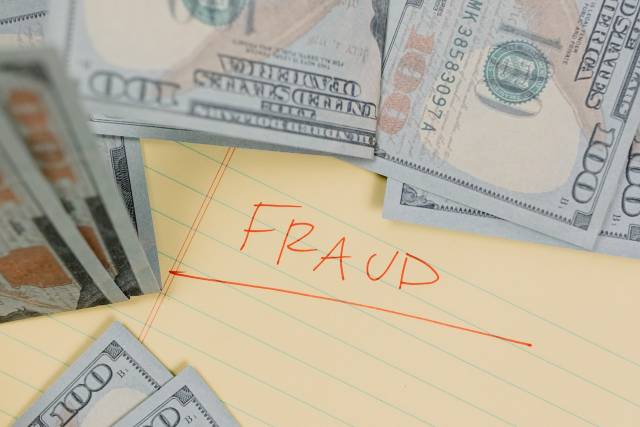When securities fraud is discovered, legal action can be taken against the perpetrators as long as the statute of limitations for securities fraud has not passed.
The investment and securities industry is heavily regulated to protect investors from fraud and other unscrupulous practices.
Unfortunately, there are still many instances of securities fraud that occur each year.
What is the Statute of Limitations for Securities Fraud?

Under the Securities Exchange Act of 1934 Section 10(b) there are two distinct timeframes for filing claims related to securities fraud: a two (2) year statute of limitations and a five (5) year statute of repose.
Investment Losses? Let’s Talk.or, give us a ring at 800-732-2889.
IMPORTANT: Securities fraud is a complex area of law, and the statute of limitations can be complicated to determine. Due to this, if you believe you are a victim of securities fraud, you should consult with an experienced securities fraud attorney to discuss your legal options and whether the statute of limitations may apply to your case.
This is where things can get complicated when dealing with lawsuits relating to securities fraud. Both of these timelines begin running on different dates, and it is important to understand the difference between them.
For the two-year statute of limitations, the clock starts ticking when the plaintiff becomes aware of the “facts constituting the violation.”
The five-year repose period begins from the defendant’s last culpable act, regardless of whether the plaintiff is aware of it or not.
The pairing of these two timelines ensures that there is always a chance to take legal action against securities fraud, even if the victim was not aware of the fraud at the time it occurred.
Regardless, if securities fraud has occurred, the sooner action is taken, the better.
Investment Losses? We Can Help
Discuss your legal options with an attorney at The Law Offices of Robert Wayne Pearce, P.A.
or, give us a ring at (800) 732-2889.

How does the law define when a securities fraud has been “discovered” or should have been discovered?
Due to the complexity of the securities and investment market, it can be difficult to determine when a securities fraud has been “discovered” or should have been discovered. In part, this is why there is a range of two to five years after the date of the fraud within which legal action can be taken.
As a good rule of thumb, the time starts ticking on the statute of limitations when the investor becomes aware of (or discovers) the facts or should have been aware of the facts that would cause a reasonable person to believe that securities fraud has occurred.
This means two things: one, if the investor believes that he or she has been defrauded, the investor should act quickly and consult with an investment fraud attorney to discuss his or her legal options; and two, if the investor is unsure whether securities fraud has occurred, the investor should err on the side of caution and seek legal counsel to avoid losing the right to take action.
IMPORTANT: Unfortunately, ignorance to a securities fraud often will not excuse the running of the statute of limitations. If you have suffered investment losses due to another’s actions, you may have a securities fraud claim, even if you were unaware of the fraud at the time it occurred.
How is Securities Fraud handled in Court?
The securities fraud cases for investors are typically handled in civil court and arbitrations, rather than criminal court.
A vast majority of securities fraud are brought under Rule 10b-5 of the Securities Exchange Act of 1934, which prohibits “any manipulative, deceptive, or fraudulent practices” in the securities industry.
In addition, securities fraud cases can be tried through the FINRA arbitration process. More and more disputes are being handled through FINRA arbitration, as it is generally faster and less expensive than going to court.
You can represent yourself in a FINRA arbitration, but even FINRA recommends that you consult a FINRA arbitration attorney to ensure that your case is properly presented and all possible legal options are explored.
How to Report Securities Fraud
If you believe that you have been the victim of securities fraud, there are a few things you can do:
- File a complaint with the Financial Industry Regulatory Authority (FINRA).
- File a complaint with the U.S. Securities & Exchange Commission (SEC).
- Contact an experienced securities fraud attorney.
In securities fraud claims, timely filing of a claim is critical. As a result, if you believe you have been the victim of securities fraud, it is essential to act quickly.
Filing a complaint with FINRA or the SEC generally will not help you get compensated for your losses. However, it is an important step in the dispute resolution process as any investigation by the regulators might put pressure on the defendants to resolve your claim and get compensation for your losses.
An experienced securities fraud attorney can help you navigate the process of filing a claim and recovering your losses.
Consider Speaking with a Securities Fraud Attorney
If you believe that you have been the victim of securities fraud, you do have legal options available to you.
Finding yourself a victim to securities fraud can be a confusing and frustrating experience. We can help.
At The Law Offices of Robert Wayne Pearce, P.A., we have successfully represented many investors who have been victims of securities fraud.
To schedule your free confidential consultation, please call us at 561-338-0037 or fill out one of our short contact forms.

